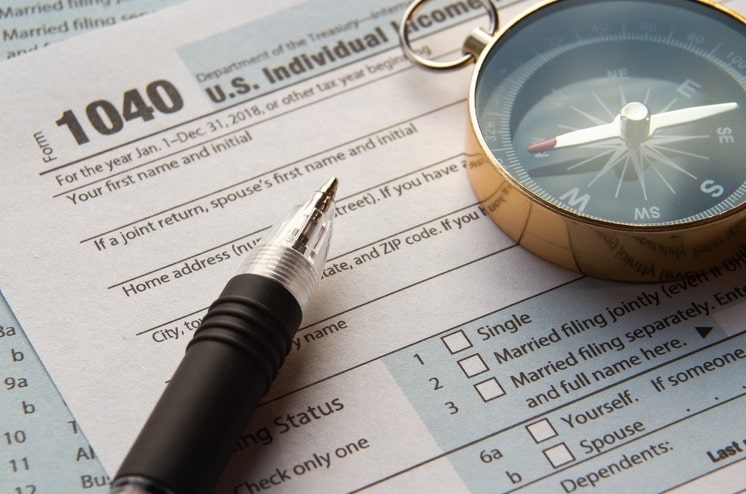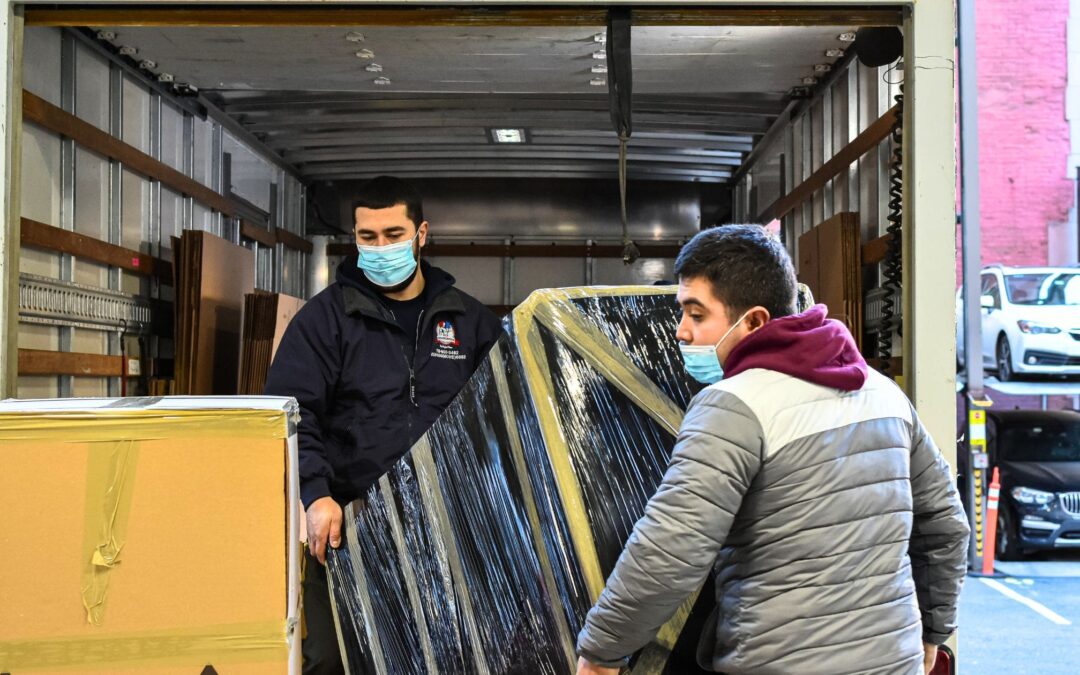If you’ve moved in the past, you might remember that you could deduct some moving expenses from your taxes so long as you met a few requirements. Thanks to the Tax Cuts and Jobs Act of 2017, moving expenses are no longer tax deductible. While the bill did help simplify individual taxes and doubled the standard deduction, it also eliminated many deductions including moving expenses. The change went into effect on December 31, 2017 and will last until December 31, 2025 unless Congress passes additional legislation.
While most people might not be able to claim these relocation expenses on their tax forms, there are a handful of ways you might still be able to claim deductions.
US Armed Forces
If you are an active member of the US Armed Forces, your move may still qualify. In order to deduct your expenses though, you have to meet the following requirements:
- You are on active duty
- You relocated due to a permanent change of station
A permanent change of station can mean a move from your house to your first post of active duty, a move between two posts of duty, and a move from your last post to your home or a closer location in the US. A spouse or dependent can also qualify to deduct these moving expenses.
So what qualifies as deductible moving expenses?
- The moving service – whether you go the DIY route or hire a professional moving service, you can deduct the cost of moving and transporting items to your new home. This includes packing materials, the van/trailer rental, etc.
- Storage – if you need to store your items in between the move, this can potentially be deducted. Storage after you move into your new place is not deductible.
- Travel – If you’re using your car to haul a trailer or renting a van, you can deduct the cost of gas that you use to fill up your tank. If you don’t want to hold onto receipts, you can use the standard mileage rate. If a family member traveled via plane or train you can deduce those as well. Even hotel stays are deductible though meals are not. When traveling to your new place, you should only deduct expenses related to the move. Detours, taking the ‘scenic route, etc. can all affect your deduction.
Average Cost of Moving in the US
| Type of Move | DIY Move Average Cost | Professional Movers Average Cost | Notes / Considerations |
|---|---|---|---|
| Local Move (<50 miles) | $400 – $2,500 | $1,200 – $4,000 | DIY includes truck rental, gas, and packing materials; pro movers handle everything. |
| Long-Distance Move (50–500 miles) | $2,000 – $5,000 | $4,000 – $8,000 | Cost depends on items, weight, and whether you pack yourself or hire packers. |
| Cross-Country Move (>500 miles) | $4,000 – $7,000 | $8,000 – $15,000 | Includes fuel, overnight stops, and shipping container/truck rental for DIY; pros handle logistics. |
| Apartment / Small Home (1–2 bedrooms) | $1,500 – $3,000 | $3,500 – $6,000 | Smaller moves are cheaper; DIY is manageable for short distances. |
| Large Home (3–5+ bedrooms) | $3,000 – $7,000 | $8,000 – $12,000 | Professional movers recommended due to heavy items and complex logistics. |
| Packing Materials | $100 – $400 | Often included | Boxes, tape, bubble wrap, packing paper; pros may include materials in total cost. |
| Insurance / Liability | $100 – $500 | Often included | DIY may need additional insurance; pros usually include basic coverage. |
| Specialty Items (piano, pool table, art) | $200 – $1,000+ | $500 – $2,500+ | Professional handling recommended due to risk and complexity. |
Moving Out of the US
If you’re relocating to a different country, you can still deduct moving expenses though you’ll have to be either a US citizen or resident alien. You’ll be able to deduct all of the above expenses including travel, storage, and packing. With overseas moves, you can also deduct the cost of shipping for your belongings whether from your old house or a storage container. If you do use a storage container, just remember that you can only deduct the amount it would have cost to ship from your former home.
Back Taxes
If for some reason you haven’t filed taxes for 2017 or earlier, you can claim moving expenses during that time period. The primary requirement for deducting moving expenses is that you moved for work whether that’s because your job changed, your business relocated, or you started a new job or business. If you can prove that the move was for work, you’ll have to meet three more conditions:
- Start of work – you can deduct moving expenses within a year of the start of your job.
- Distance test – in general, your new job must be located at least 50 miles away from your former residence than your old job was. That means if your old job was 5 miles away from your old house, the new job must be 55 miles away to qualify.
- Time test – You must have worked full-time for at least 39 weeks (9 months) during the first 12 months after your move. If you’re self-employed, you will have to work full-time for at least 39 weeks during the first 12 months for and for a total of 78 weeks during the first 24 months.
Luckily, if you’re married only one person needs to pass the time and distance test to qualify for this deduction.
Deductible vs. Non-Deductible Expenses
| Expense Type | Deductible Expenses | Non-Deductible Expenses |
|---|---|---|
| Moving Expenses | Active-duty military moving for relocation | Personal or non-military moves |
| Home Office | Pro-rated portion of rent, utilities, and internet for business use | General home maintenance or renovations |
| Travel Expenses | Business-related flights, hotels, and meals (50%) | Family vacations or personal travel |
| Medical Costs | Expenses exceeding 7.5% of adjusted gross income | Cosmetic or non-essential procedures |
| Charitable Donations | Monetary or in-kind contributions to qualified organizations | Gifts to individuals or non-registered charities |
| Education | Tuition and fees for job-related skill improvement | Courses unrelated to current employment |
State Taxes
While you might not be able to submit relocation expenses for federal taxes, there are some states that do still allow for the deductions:
- Arkansas
- California
- Hawaii
- Massachusetts
- New Jersey
- New York
- Pennsylvania
Each state has their own set of rules and regulations, so you should contact a tax adviser for more information. Also, don’t forget that you will need to claim any reimbursement from your employer for your move as income (if they provide it, of course). Similar to the federal deductions, most of the states separate moving expenses into two categories: nondeductible and reimbursed. In general, most reimbursed expenses will be the same for both private and military citizens. Nondeductible expenses include things like the purchase of your new home, the costs of selling a home, cost of entering/breaking a lease, etc. You can, however, deduct any costs related to connecting or disconnecting utilities. With that said, different states do allow for different reimbursements, so it’s best to look up the local guidelines and talk to a professional to get a better understanding of what you should submit for deductions.
Conclusion
Unless you fall within these three brackets, chances are you won’t be able to file for moving expenses. With that being the case, if your company plans on relocating your position or you get a new job in a different state, ask for relocation help. While you do have to claim this reimbursement as income, it will make your move less stressful as you’ll have some help.
FAQ
Does NYC Great Movers offer storage services?
Yes, if you need to store your belongings, we provide safe and secure storage solutions.
Can I include my pets in my deduction?
It depends on the type of expense. In general, you should contact a tax professional to see what you would be able to deduct, but generally you can deduct pet transportation expenses.
If my employer asks me for a relocation reimbursement amount, what is a good number?
That will depend on a variety of factors including distance, how much you are packing, whether you plan to move yourself or hire professional movers, and more. With that said, on average a DIY move costs around $2,500 on the high end. If you want professional movers, it could cost around $12,000 depending on the service you choose. If you’re interested in hiring professional NYC movers, fill out our online form to get a detailed quote.










